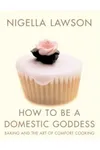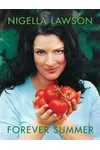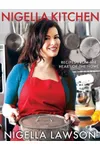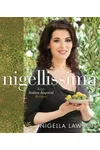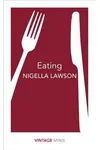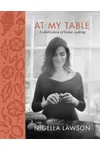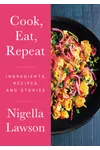Picture a British culinary icon who turned the kitchen into a haven of joy and indulgence—meet Nigella Lawson! With her warm, conversational style and knack for making cooking feel like a cozy embrace, Nigella has redefined food writing and television. From her bestselling books to her captivating TV shows, she’s a beacon of creativity, proving that food is about pleasure, not perfection.
Born in London in 1960, Nigella’s journey from journalist to global food star is as rich as her recipes. Her approachable charm and unapologetic love for flavor have inspired millions to find magic in everyday meals. Let’s dive into her story, from her early days to her lasting impact on how we cook and connect.
The Making of Nigella Lawson
Nigella Lawson grew up in a prominent family, daughter of politician Nigel Lawson and heiress Vanessa Salmon. Despite her privileged background, her early life wasn’t without challenges, including a strained relationship with her mother and the loss of loved ones. Initially, she carved a path in journalism, writing for The Sunday Times and The Guardian, where her sharp wit and vivid prose shone. Her pivot to food writing came naturally, fueled by a lifelong passion for cooking as a form of self-expression.
By the late 1990s, Nigella transitioned from restaurant critic to culinary storyteller. Her first book, How to Eat, published in 1998, marked her debut as a food writer who spoke to home cooks with intimacy and humor. This leap from journalism to food wasn’t just a career shift—it was the start of a cultural phenomenon.
Nigella Lawson’s Unforgettable Culinary Works
Nigella’s books are like conversations with a wise, food-loving friend. How to Eat (1998) set the tone with its focus on intuitive, pleasure-driven cooking. It’s less a recipe book and more a manifesto for savoring life’s simple joys, with dishes like her iconic lemon polenta cake. Nigella Bites (2001) paired recipes with personal anecdotes, cementing her as a relatable voice in a world of rigid culinary dogma.
Her 2004 book, Feast, explores food’s role in celebrations, from Christmas roasts to late-night snacks, showcasing her knack for blending comfort with sophistication. At My Table (2017) continues this ethos, offering recipes like her emergency brownies that feel like a hug in dessert form. Nigella’s style—lush, descriptive, and unpretentious—invites cooks to embrace imperfection. She champions home cooking as an act of love, not a performance, with themes of indulgence, nostalgia, and connection woven throughout.
Beyond books, her TV shows, like Nigella Bites and Cook, Eat, Repeat, bring her recipes to life. Her sultry delivery and candid storytelling have made her a global star, though she’s faced scrutiny for her glamorous image. Yet, Nigella remains authentic, turning criticism into a celebration of self-acceptance.
Why Nigella Lawson Matters
Nigella Lawson’s impact transcends recipes. She’s a cultural force who made cooking accessible and emotional, especially for women navigating busy lives. Her rejection of diet culture and embrace of pleasure have resonated deeply, encouraging cooks to find joy in the kitchen. Her influence spans generations, inspiring both novice cooks and seasoned chefs to prioritize flavor and feeling over precision.
Despite personal tragedies, including the loss of her first husband and public challenges, Nigella’s resilience shines. She’s a reminder that food can be a source of comfort and creativity, even in tough times. Her legacy lies in her ability to make every meal a story, connecting people through shared moments of delight.
About Nigella Lawson
- Born: January 6, 1960, London, England
- Key Works: How to Eat, Nigella Bites, Feast, At My Table
- Awards: British Book Award for Author of the Year (2000)
- Fun Fact: Nigella’s love for food began in childhood, sneaking midnight snacks from the fridge!
Ready to taste Nigella’s world? Grab How to Eat or stream Cook, Eat, Repeat to discover why her recipes—and her spirit—are pure kitchen magic!

